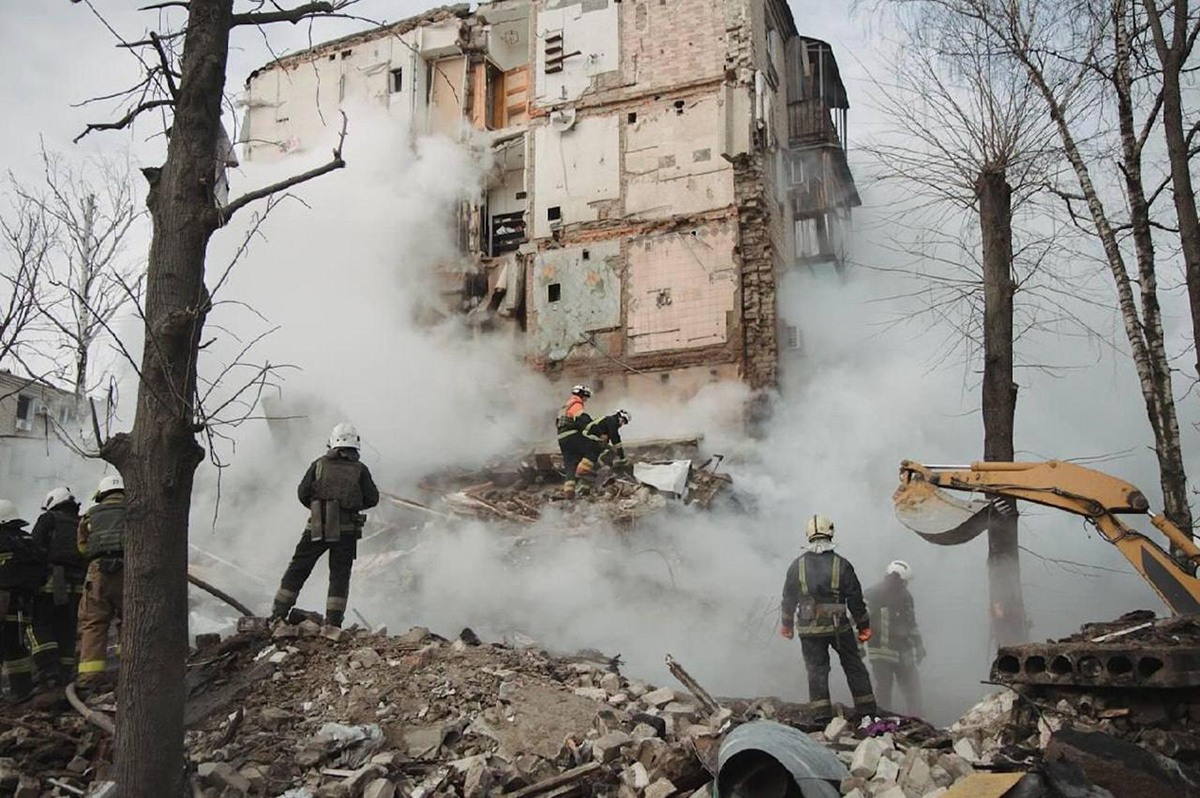“It is a horror”: Some Ukrainians dear there won’t be justice for Russia’s war crimes
As Russia’s full-scale war in Ukraine enters its third year, allegations and evidence of war crimes committed by Moscow’s forces continue to mount. International efforts are being made to prosecute the crimes, but many are worried that a majority of the incidents will never make it to trial.
The latest data from Ukraine’s Prosecutor General’s Office alleges that more than 125,000 “crimes of aggression and war crimes” have been committed by Russia throughout the two-year war.
Some of the most common violations of the internationally agreed upon laws of war is the ill-treatment of war prisoners, crimes committed against civilians, the expulsion of civilians for forced labour, and the looting of state-owned properties in Ukraine’s occupied territories.
Tetiana Mishchenko, a 64-year-old pensioner and former economist from Ukraine’s eastern Luhansk region, describes the war crimes as “a horror” but fears legal justice will not be punished.
“The abuse that our prisoners of war and civilians endure is beyond the imagination of a normal person,” she said. “It is a horror. And there is a lot of anger. There is a fear that the criminals will not be punished.”
Since the war started, journalists, law enforcement officers, and multiple international organisations have been painstakingly documenting potential war crimes hoping that justice will one day be served.
“But I believe that this is very hard and painstaking work, work that will last for many years. Many decades,” Mishchenko added.
Serhii Mytkalyk, a co-founder at the Register of Russian War Criminals which registers potential war crimes, told Context that the chief task is “to collect and document all the crimes” and to link individual names of perpetrators to crimes.
“Identification of war criminals is a good evidence base for international institutions and bodies,” he said, “because we see one of the ways to punish them (is) in the International Criminal Court or a special tribunal.”
At the end of 2023, convictions for war crimes paled in comparison to the number being prosecuted: 170 Russians have been formally charged out of more than 100,000 criminal proceedings for war crimes, Mytkalyk said.
Crimes committed on the war’s frontlines, he said, are naturally difficult to investigate. Some criminal proceedings are also being conducted in absentia, where convictions for people found guilty can lead to restricted movements outside Russia.
A grim trend in Russia’s war crimes amid the ongoing conflict is the forced deportation of Ukrainian children to Russia, to Russian-held territories, or the forced adoption of minors into Russian families.
“This is the policy of the Russian Federation,” said Kateryna Rashevska, a lawyer and expert at the Regional Center for Human Rights, adding that the scheme is “aimed at eradicating Ukrainian identity.”
Last year, the International Criminal Court issued arrest warrants for Russian President Vladimir Putin, and Lvova-Belova, both on war crimes charges for the illegal deportation of Ukrainian citizens, including minors.
“There are still only two arrest warrants and prosecutors are still working on collecting additional information,” Rashevska said. “Until Putin or Lvova-Belova are physically in (the ICC court), there will be no beginning of the trial – because it is impossible to have a trial without these people.”
Ukraine is not a member of the ICC, but the court has taken to investigating potential war crimes committed by Russia in Ukraine including the forced deportation of children.
Returning children to their homeland is a complicated and often lengthy process. Several non-governmental organizations help to reunite deported children but often focus on individual cases because repatriating groups can add to complications. Additionally, Russia does not help facilitate the return of minors.
„When you get access to children, when you get access to their families, you still worry, you know what they look like, where they come from, you worry about their fate,” Rashevska said, adding that she hopes this year’s progress will be made at the International Criminal Court, including new arrest warrants.
“The more we document the crimes committed, the more arguments for international criminal courts to hold Putin accountable for the attacks and crimes that are being committed, and the genocide of the Ukrainian people,” she added.
For Daria Khyzhniakova-Bilokon, a 33-year-old content creator from the small town of Gostomel, every day she wakes up as the war drags on is a matter of luck but also a sign of hope for the future.
“We are lucky to have every new day,” she told Context in the nearby town of Bucha, which early in the war became a killing field, a site of war crimes committed en masse. “People are rebuilding and painting. These fences that were shot through with bullets … They painted them with flowers.”
“This is the motivation to live on … to continue working. A drop of hope that everything will be fine,” she added. “We are not rebuilding this for the Russians.”


